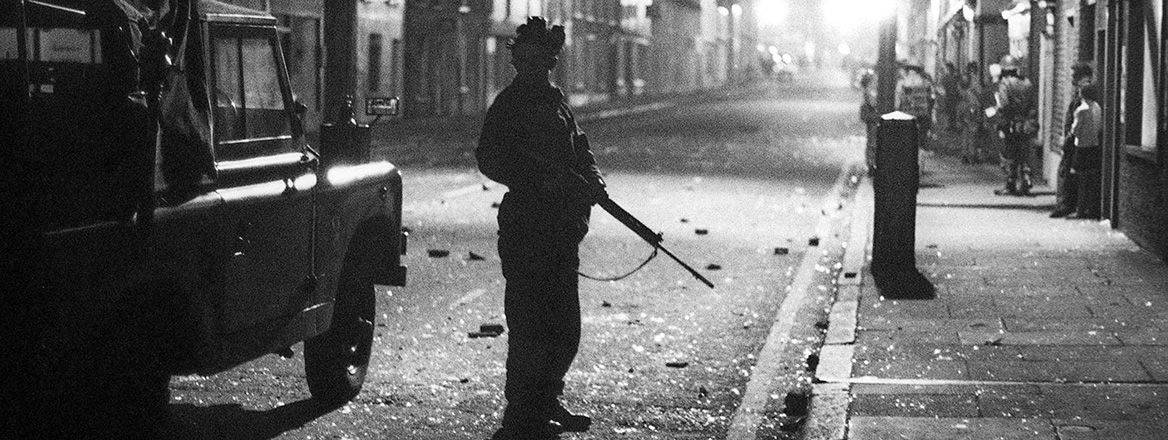Lessons Learned by Britain's Armed Forces After Bloody Sunday
In a commentary we published earlier this year marking the 50th anniversary of the ‘Bloody Sunday’ fatal shootings, Dr Edward Burke argued that an ‘unwillingness to learn from atrocities in Northern Ireland means that events such as Bloody Sunday continue to impact upon the British Army’. A senior Army commander with extensive experience of the period responds.
How very disappointing to read Dr Edward Burke’s misinformed piece about the failure of the British Army to learn lessons after Bloody Sunday.
When the British armed forces were first deployed to Northern Ireland in 1969 under Operation BANNER – involving all three services – it was solely to help the Royal Ulster Constabulary restore law and order, operating ‘In Aid of the Civil Power’. There was no presumption that this would be a lengthy affair. No specific training existed for troops deployed: the author would do well to view the black and white training film – made to instruct our armed forces on how to deal with counterinsurgency in former colonies – which was the only guide available, and was totally inappropriate.
A ‘yellow card’ was introduced in 1969 – though not a source of law – to be carried individually by everyone in the province, as an instruction to guide service personnel on when they were permitted to open fire. Approved by HMG’s Cabinet of the day, it was revised four times between September 1969 and November 1971, as a result of lessons learned. A further two revisions took place in July 1972 (as a result of Bloody Sunday) and again in November 1972.
The Northern Ireland Training and Advisory Team helped to develop and standardise tactics across the province, frequently enhancing training from the lessons of the previous four months of operations
By the autumn of 1972, the Northern Ireland Training and Advisory Team (NITAT) was established in Kent – and in Sennelager for units stationed in Germany – with a view to ensuring pre-deployment training was focused on up-to-date lessons before deployment. Standardising training for all ranks, it ensured that every unit was thoroughly briefed and prepared for their role and specific area of operations. NITAT helped to develop and standardise tactics across the province, frequently enhancing training from the lessons of the previous four months of operations, using instructors with recent experience.
As late as 1993, the House of Commons Defence Select Committee requested an urgent briefing at NITAT, alarmed at the potential inadequacy of the ‘yellow card’ of the day. Having been put through their paces as part of a routine patrol over more than two hours, harassed by a simulated angry mob, they were disturbed by their experience. Returning to London, they set in train a further amendment to the ‘yellow card’ – as a result of lessons learned.
Major General Dair Farrar-Hockley MC, General Officer Commanding, 2nd Infantry Division (1996–1999)
The views expressed in this Commentary are the author’s, and do not represent those of RUSI or any other institution.
Have an idea for a Commentary you’d like to write for us? Send a short pitch to commentaries@rusi.org and we’ll get back to you if it fits into our research interests. Full guidelines for contributors can be found here.
- Jim McLeanMedia Relations Manager+44 (0)7917 373 069JimMc@rusi.org

